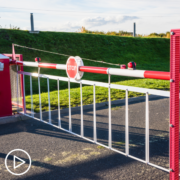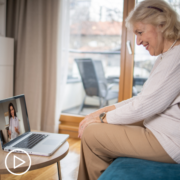Can Mobile Health Apps Lower the Burden of MPN Symptoms?
Can Mobile Health Apps Lower the Burden of MPN Symptoms? from Patient Empowerment Network on Vimeo.
How can the burden of myeloproliferative neoplasm (MPN) symptoms be lessened through the use of mobile health apps? Blood cancer patient Lisa Hatfield shares common MPN symptoms that patients experience and explains wellness strategies and mobile app study results that decreased the symptom burden for patients.
See More from MPN TelemEDucation
Related Resources:

|

|

|
Transcript:
Lisa Hatfield:
As an MPN patient, you might experience symptoms like fatigue, night sweats, difficulty sleeping, abdominal discomfort, bone pain and others. However, early data using integrative approaches for the treatment of MPNs are promising, including aerobic activity, yoga, meditation, and strength training, to reduce the symptom burden and improve inflammation. With the evolution of smartphone technology, mobile apps have been increasingly popular to document wellness strategies. With this in mind, the University of Arizona Andrew Weil Center for Integrative Medicine developed and successfully piloted a global wellness mobile app, My Wellness Coach (MWC), to guide MPN patients on self-management strategies for their symptom burden.
The app had patients set at least two wellness goals with clear action steps within these seven areas: nutrition, movement, sleep, resilience, environment, relationships and spirituality to work on over the course of 12 weeks. Within the app, there were links to curated resources and tips. Participants were sent 24- to 72-hour interval reminders before and after each action step and a goal deadline to encourage action throughout the intervention. At the end of the study, improvements were observed in inactivity, impaired concentration, dizziness, numbness, sexual dysfunction, night sweats, bone pain, and quality of life.
If you’d like to implement something similar to what the participants did, try the following:
- Reflect on why you want to change your symptom burden so you feel motivated
- Determine which of these categories: nutrition, movement, sleep, resilience, environment, relationships, and spirituality would you like to set goals in
- Create two goals from those categories and make them SMART- specific, measurable, attainable, relevant, and time-bound.
- Utilize resources available to you through support groups or online tools
- Set reminders on your phone or calendar for each step you need to take to complete your SMART goals
Mobile-based apps are another example of how MPN patients can use telemedicine in their day-to-day life and improve care.
Share Your Feedback:
Create your own user feedback survey



